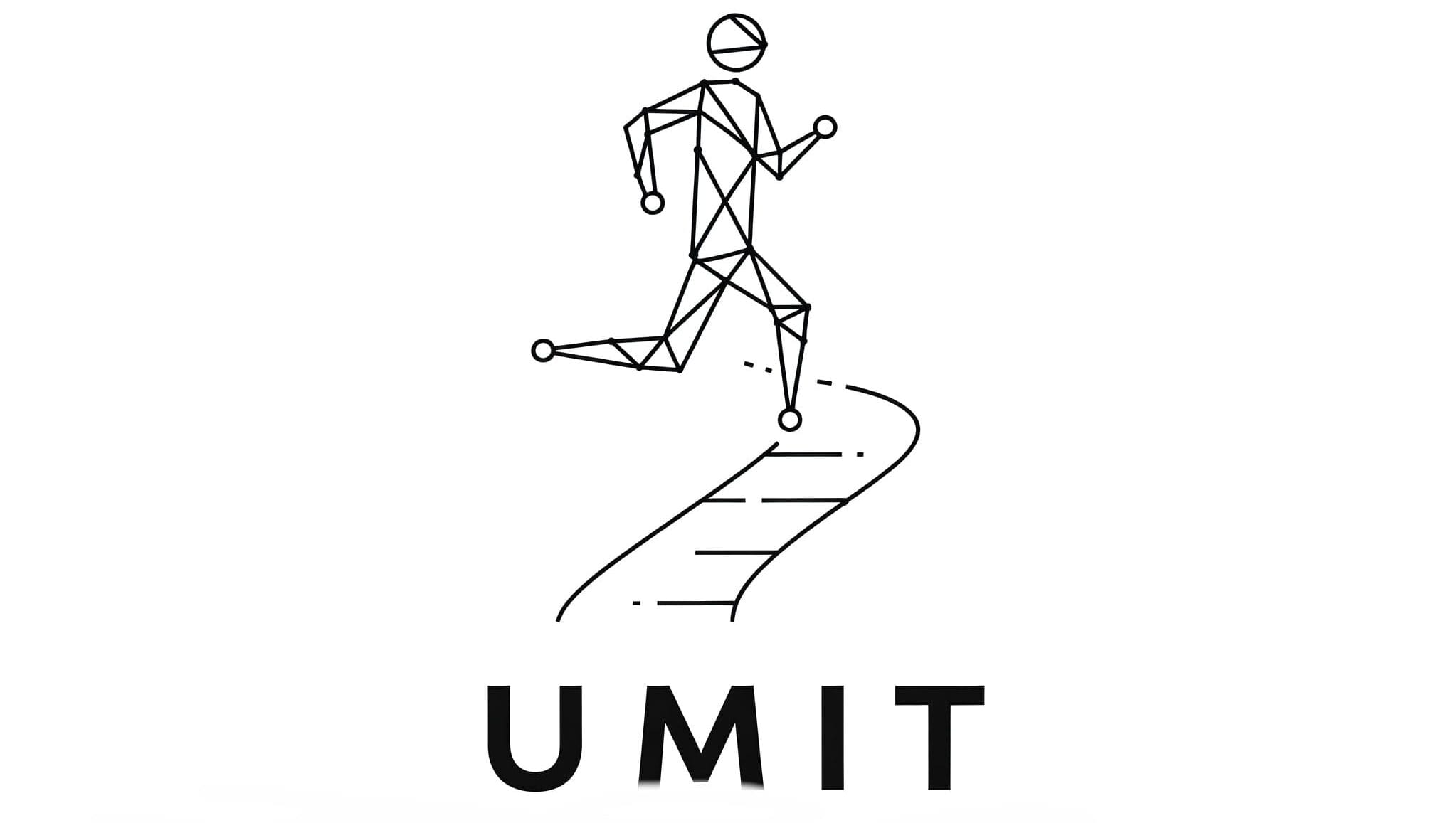🏁 Introduction: Why Marathon & Road Racing Are the Pinnacle of Running Mastery
In the world of running, few challenges demand more precision, grit, and heart than marathon and road racing.
👉 It’s not just about speed. It’s not just about endurance. It’s about mastering both — under pressure, at scale, against the clock.
Every city street, every empty road, every roaring finish line is a stage where runners chase greatness —
and those who master marathon and road racing unlock a level of athletic artistry few ever reach.
🏔️🏃♂️🏁
🧠 Why Marathon & Road Racing Are a Unique Challenge
Unlike trails, track races, or ultras, road races demand a brutal cocktail of skills:
- Precise pacing:
Slight miscalculations destroy even the strongest legs by mile 20. - Mental resilience:
Flat roads and endless concrete play cruel games with your mind. - Strategic fueling:
Minor fueling errors lead to catastrophic bonks, dehydration, and DNF heartbreak. - Pain tolerance:
Holding threshold efforts for hours without breaking requires a deep well of suffering skills.
Pro Tip:
Success in marathon and road racing comes not from luck — but from relentless, structured mastery of every controllable detail.
📚 What This Master Guide Will Deliver
This isn’t just another generic list of “run slow, then run fast” advice.
You’ll discover:
✅ How to choose the best marathon and road race targets for your skill level.
✅ How to structure flawless training plans for road racing success.
✅ Mental toughness techniques designed specifically for asphalt battles.
✅ Pacing strategies that help you conquer “The Wall” and finish strong.
✅ Nutrition plans tailored to marathon and half-marathon racing.
✅ Recovery secrets that set you up for long-term racing careers.
🛤️ The Beauty and Brutality of the Open Road
- Road races are pure:
No technical trails, no mountains to blame, no distractions — just you versus the distance. - Road races are honest:
The stopwatch doesn’t lie. Your splits are your story. Every decision — from your first mile to your last stride — gets recorded forever. - Road races are legendary:
From the bustling streets of Boston to the windy shores of Berlin, road marathons create the legends that inspire generations.
🎯 Who This Guide Is For
- First-time marathoners aiming to survive and thrive.
- Intermediate runners chasing PRs and Boston Qualifiers.
- Experienced racers looking to fine-tune their pacing, fueling, and mental strategy.
- Anyone obsessed with the beautiful brutality of road racing and determined to master it.
🏁 Final Words of Introduction
👉 Marathon and road racing are the ultimate tests of running mastery —
because they demand everything: heart, lungs, legs, mind, soul.
If you want to reach your true potential —
👉 it’s time to master the road.
Let’s begin the journey.
🏔️🏃♂️🏁🔥
🛤️ Understanding the Unique Demands of Road Racing
Road racing looks simple on the surface —
flat roads, clear markers, steady pacing.
But beneath that simplicity lies a brutal truth:
👉 Road racing exposes every weakness you have — and magnifies it.
🏔️🏃♂️🛤️
To truly master marathon and road racing, you must understand the unique physical and psychological challenges it brings.
🧠 Precision Pacing: A Game of Patience and Discipline
In trail ultras, terrain changes naturally create pacing variability.
But on the road?
👉 It’s 100% up to you to hold the line — mile after mile after mile.
Why it’s hard:
- Early adrenaline tempts you to go out too fast.
- Endless flatness makes it easy to misjudge effort levels.
- The smallest early mistakes balloon into catastrophic fatigue late in the race.
✅ Road Racing Rule #1:
Start conservatively. Stick to your plan. Save your fire for the final miles.
⚡ Energy System Demands: Threshold vs. Endurance Balance
Road races — especially half marathons and marathons —
demand a brutal balance between sustained threshold effort and long-haul endurance.
You must train to:
- Raise your lactate threshold (comfortably hard pace for hours).
- Expand your aerobic base (maximizing fat burning, saving glycogen).
- Sharpen neuromuscular efficiency (holding good form when exhausted).
Pro Tip:
Threshold work (tempo runs, cruise intervals) is your best friend for road racing success.
🥤 Fueling Precision: No Margin for Error
Unlike shorter events, marathons require meticulous fueling during the race.
Mistakes include:
- Skipping early fuel (waiting until you “feel hungry” — too late).
- Over-fueling (gut shutdown).
- Poor electrolyte balance (leading to cramps or hyponatremia).
✅ Master marathon fueling by practicing:
- Timing (every 30–40 minutes).
- Carb intake rates (30–60g per hour minimum).
- Fluid + electrolyte balance based on race conditions.
🏙️ Environmental Factors: Urban Races Are Deceptively Tough
City marathons and road races present unique hidden challenges:
- Concrete and Asphalt: Hard surfaces amplify muscle fatigue and joint pounding.
- Crowds: Amazing energy, but also claustrophobia and pacing disruptions.
- Tight Corners and Turns: Break rhythm, require re-acceleration.
- Weather Swings: Urban heat islands can make temperatures feel 5–10°F hotter.
Pro Tip:
Train on roads, not just trails, to condition your body to the specific stresses of racing surfaces.
🧠 Mental Warfare: Loneliness and Repetition
Road marathons are mental grind-fests:
- Long straightaways can feel infinite.
- Repeating scenery (blocks, identical streets) drains focus.
- Internal doubts grow louder when there are no distractions.
✅ Key Mental Skills:
- Visualization practice (rehearsing tough moments).
- Micro-goal setting (“Run to the next aid station. Then the next lamp post.”).
- Positive self-talk (“Strong. Steady. Smooth.”).
🏁 Final Blueprint for Understanding Road Racing
👉 Road racing is brutally fair:
You get exactly what you trained for — no more, no less.
Master pacing.
Dial in fueling.
Sharpen your mind.
🏔️🏃♂️🛤️🔥
🛠️ Training for Road Racing: Key Workouts and Periodization
Training for marathon and road racing isn’t just about piling on miles.
👉 It’s about crafting a smart, progressive system that builds fitness exactly where it matters most — and at exactly the right time.
🏔️🏃♂️🛠️
Let’s break down how to build a true road racing machine.
📅 The Phases of a Road Racing Training Plan (Periodization)
Smart training is divided into specific phases —
each with a clear goal and stress pattern.
1. 🏗️ Base Phase (Aerobic Foundation)
Goal: Build maximum aerobic capacity without stressing the body too early.
✅ Focus:
- Easy mileage (70–80% of weekly runs at easy pace).
- Long slow distance (LSD) runs.
- Gentle strides or hill sprints to maintain turnover.
✅ Duration:
- 6–12 weeks depending on race distance and runner experience.
Pro Tip:
Skipping the base phase = building a skyscraper on sand.
2. ⚡ Speed and Strength Phase (Race-Specific Power)
Goal: Develop speed endurance and increase lactate threshold.
✅ Focus:
- Tempo runs at comfortably hard pace (85–88% max HR).
- Cruise intervals (5–15 minutes each) with short recovery jogs.
- Hill repeats to build strength and running economy.
✅ Duration:
- 4–8 weeks, depending on event and training age.
Pro Tip:
Speedwork early in the plan should be about control, not redlining.
3. ⏱️ Specificity Phase (Marathon Pace Dial-In)
Goal: Lock in goal race pace and fuel timing.
✅ Focus:
- Marathon-pace long runs (progressively longer).
- Race-pace tempo runs.
- Fueling simulations under race conditions.
✅ Duration:
- Last 6–8 weeks before race day.
Pro Tip:
By race day, marathon pace should feel like a familiar friend — not a wild guess.
4. 🪶 Taper Phase (Sharpen and Freshen)
Goal: Shed cumulative fatigue without losing sharpness.
✅ Focus:
- Decrease weekly mileage by 20–30% each week.
- Maintain short race-pace efforts to keep muscles activated.
- Sleep, hydrate, and recover aggressively.
✅ Duration:
- 2–3 weeks pre-race (already detaylıca işledik boss 🔥).
🔥 Essential Key Workouts for Road Racing Success
| Workout | Why It Matters |
|---|---|
| Long Runs | Endurance, mental toughness, fueling practice |
| Tempo Runs | Increase lactate threshold (race pace sustainability) |
| Interval Sessions | Boost VO2 max, neuromuscular efficiency |
| Race-Pace Specific Runs | Lock in goal pacing |
| Hill Repeats | Strengthen running economy and injury resistance |
| Strides (20s sprints) | Maintain leg turnover without fatigue |
📊 Example Road Racing Training Week (Peak Phase)
| Day | Focus |
|---|---|
| Monday | Rest or easy cross-training |
| Tuesday | Tempo run (5–8 miles total) |
| Wednesday | Easy recovery run |
| Thursday | Intervals or hills (6–8 x 800m at 5K pace) |
| Friday | Easy run + strides |
| Saturday | Long run with race-pace finish |
| Sunday | Recovery run or cross-training |
📊 Common Marathon Pacing Mistakes (And How to Fix Them)
Mistake Fix Starting too fast Run the first 3 miles 15–20 seconds slower than goal pace Skipping early fueling Begin fueling within 30 minutes of starting Dressing too warmly Dress for 15°F warmer than actual temperature Ignoring mental preparation Use mantras and visualize success in advance
🏁 Final Blueprint for Road Racing Training
👉 Road racing rewards the patient builder —
not the reckless charger.
Layer your fitness.
Sharpen your edge.
Arrive at the start line a perfectly honed weapon.
🏔️🏃♂️🛠️🔥
🧳 Race Week Preparation: Logistics, Gear, and Final Tactics
You’ve trained for months.
You’ve conquered long runs, smashed tempo workouts, sharpened your mind.
👉 Now, the final week is about execution, precision, and calm confidence.
Race week isn’t just about “running less” —
👉 it’s about tuning every detail so you can unleash your best on race day.
🏔️🏃♂️🧳
Let’s lock it all down.
🧠 Quiz: How Well Do You Know Marathon & Road Racing?
- What is “hitting the wall” in marathon running?
a) Overheating
b) Severe energy crash ✅
c) Gear failure- How often should you ideally fuel during a marathon?
a) Every 15 min
b) Every 30–40 min ✅
c) Only when hungry- Which is NOT typically a cause of cramping in races?
a) Electrolyte loss
b) Mental fatigue
c) Poor shoe choice ✅- What is the primary goal of a taper before a marathon?
a) Increase fitness
b) Reduce fatigue ✅
c) Try new race strategies- During race week, how should you adjust your mileage?
a) Increase it slightly
b) Maintain peak load
c) Gradually reduce it ✅
📋 Download: The Ultimate Marathon Race Week Checklist
✅ Confirm race registration and bib number
✅ Check travel logistics and hotel arrangements
✅ Plan race day gear, nutrition, and pacing strategy
✅ Hydrate properly 2–3 days pre-race
✅ Visualize your race day success
✅ Pack recovery essentials for the finish linePro Tip:
Eliminate race morning chaos by over-preparing logistics now.
🎒 Race Gear Finalization
✅ Shoes:
- Race in shoes you’ve trained in (at least 50–100 miles broken-in).
- No brand new shoes on race day — ever.
✅ Clothing:
- Weather-appropriate top, shorts, hat, gloves (layering if needed).
- Test your race outfit fully in a long run — no surprises.
✅ Gear:
- Watch/GPS device (fully charged).
- Gels, chews, or preferred fuel packed and organized.
- Hydration options if not relying solely on aid stations.
✅ Essentials:
- Sunscreen, anti-chafe balm, body glide, nipple guards if needed.
Pro Tip:
Lay out ALL race gear the night before — visual checks reduce anxiety.
🥤 Nutrition and Hydration Plan Lock-In
✅ Carb Loading:
- Increase carb percentage (not overall calories) 2–3 days pre-race.
- Focus on easy-to-digest carbs (rice, pasta, bread, oatmeal, bananas).
✅ Hydration:
- Steady intake of water + electrolytes starting 2–3 days out.
- Avoid massive overhydration (no “super-hydrating” the night before).
✅ Pre-Race Breakfast:
- Eat familiar foods 2–3 hours before start.
- High-carb, low-fat, moderate-protein.
- Avoid experimenting with new foods or supplements.
Pro Tip:
Your gut needs to be as prepared as your legs.
🗳️ Quick Poll: What’s Your Biggest Road Racing Challenge?
What’s the hardest part of road racing for you?
- 🏃♂️ Pacing correctly from start to finish
- 🧠 Staying mentally strong in the final miles
- 🥤 Fueling and hydration during the race
- 🛤️ Managing pre-race logistics and stress
- 📆 Training consistently leading up to race day
🎯 Race Morning Tactics
✅ Wake up early — at least 2–3 hours before race start.
✅ Go through your normal pre-race routine (bathroom, light stretching, mental rehearsal).
✅ Dress appropriately based on race start temp (you will warm up — don’t overdress).
✅ Plan arrival to start area with time to spare — at least 45–60 minutes early.
Pro Tip:
Pre-race logistics should feel like a well-rehearsed drill, not a chaotic scramble.
🧠 Mental Strategy for Race Week
✅ Visualize success — the start, the middle grind, the finish line triumph.
✅ Expect moments of discomfort — plan your response ahead of time.
✅ Rehearse your mantras (“Calm is fast.” “Strong, steady, relentless.”)
✅ Stay flexible — conditions won’t be perfect, and that’s okay.
Pro Tip:
Confidence isn’t arrogance — it’s trust built from thousands of honest miles.
🏁 Final Blueprint for Race Week
👉 Racing your best marathon isn’t just about legs —
it’s about preparation, presence, and poise.
Plan ruthlessly.
Execute calmly.
Race fearlessly.
🏔️🏃♂️🧳🔥
🎯 Post-Race Reflection and Future Goals
Crossing the finish line is a triumph —
but it’s also a beginning.
👉 Every race teaches you something. Every finish is fuel for the future.
True mastery of marathon and road racing comes not just from running races,
👉 but from learning, adapting, and evolving with each finish line you cross.
🏔️🏃♂️🎯
Let’s capture the lessons while they’re still fresh —
and set the stage for even greater victories.
🏃♀️ Case Study: How Lisa Shaved 25 Minutes Off Her Marathon Time
Lisa, a recreational marathoner, used to struggle with energy crashes at mile 20.
After following structured marathon training guides and practicing smarter fueling,
she achieved a negative split at her next race — finishing 25 minutes faster than her previous PR.Key Lesson:
Smart planning beats sheer willpower. Structure, strategy, and steady fueling win races.
🧠 Reflecting on Your Race
Immediately after the race (or within the first few days), ask yourself:
✅ Pacing:
- Did you stick to your race plan?
- Did you go out too fast or start conservatively?
✅ Fueling:
- Did your nutrition and hydration strategies work?
- Any stomach issues, energy crashes, or cramps?
✅ Gear:
- Was your clothing, shoes, and fueling gear comfortable and effective?
✅ Mental Game:
- Where did your mind falter?
- Where did you stay strong and resilient?
✅ Overall Strategy:
- If you could change one thing about your preparation or race-day execution, what would it be?
Pro Tip:
Honest reflection — without judgment — is a weapon few runners master.
📝 Post-Race Debrief Template
1. What went exceptionally well?
2. What surprised you?
3. What was the lowest moment, and how did you fight through it?
4. How did your body feel at the halfway point? The final 5K?
5. One lesson to apply to the next training cycle?
🚀 Setting New Goals
Marathon and road racing mastery is built over years, not weeks.
✅ Types of Post-Race Goals:
- Performance Goals:
- “Break 4 hours next marathon.”
- “Negative split my next race.”
- Process Goals:
- “Improve race-day fueling execution.”
- “Increase average weekly mileage safely.”
- Exploration Goals:
- “Run a different course (hilly vs flat).”
- “Try a half marathon PR attempt before next full.”
✅ Timeline Planning:
- If you raced a marathon → consider at least 4–6 weeks full recovery before starting another serious build.
- Shorter road races (5K–10K) can often be resumed or targeted sooner.
Pro Tip:
Obsess over mastery — not over mileage.
🏆 Celebrate Your Victory — Big or Small
✅ Whether you crushed your PR…
✅ Or fought through brutal suffering…
✅ Or simply finished your first marathon…
👉 You did something remarkable.
Honor the effort.
Respect the journey.
Let the fire grow for what’s next.
🏔️🏃♂️🎯🔥
🏁 Final Blueprint for Post-Race Success
👉 Every finish line is a stepping stone —
not a final destination.
Learn.
Adapt.
Chase bigger dreams.
🏔️🏃♂️🎯🚀

About the Author
Lost Pace is an ultramarathon runner, shoe-tester and the founder of umit.net. Based year-round in Türkiye’s rugged Kaçkar Mountains, he has logged 10,000 + km of technical trail running and completed multiple 50 K–100 K ultras.
Blending mountain grit with data, Lost analyses power (CP 300 W), HRV and nutrition to craft evidence-backed training plans. He has co-written 260 + long-form guides on footwear science, recovery and endurance nutrition, and is a regular beta-tester of AI-driven coaching tools.
When he isn’t chasing PRs or testing midsoles, you’ll find him sharing peer-reviewed research in plain English to help runners train smarter, stay healthier and finish stronger.
Ultrarunner · Data geek · Vegan athlete

